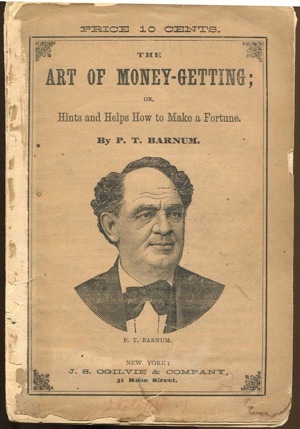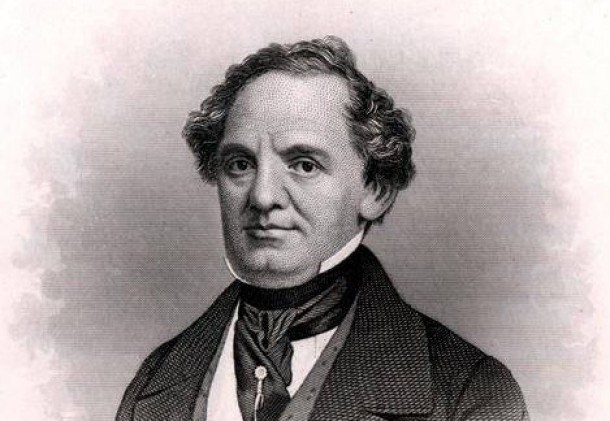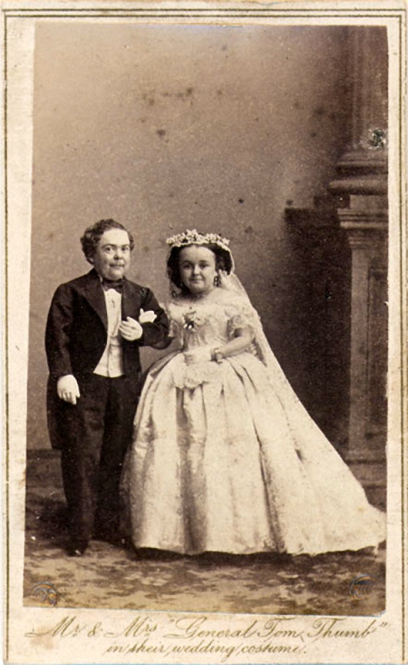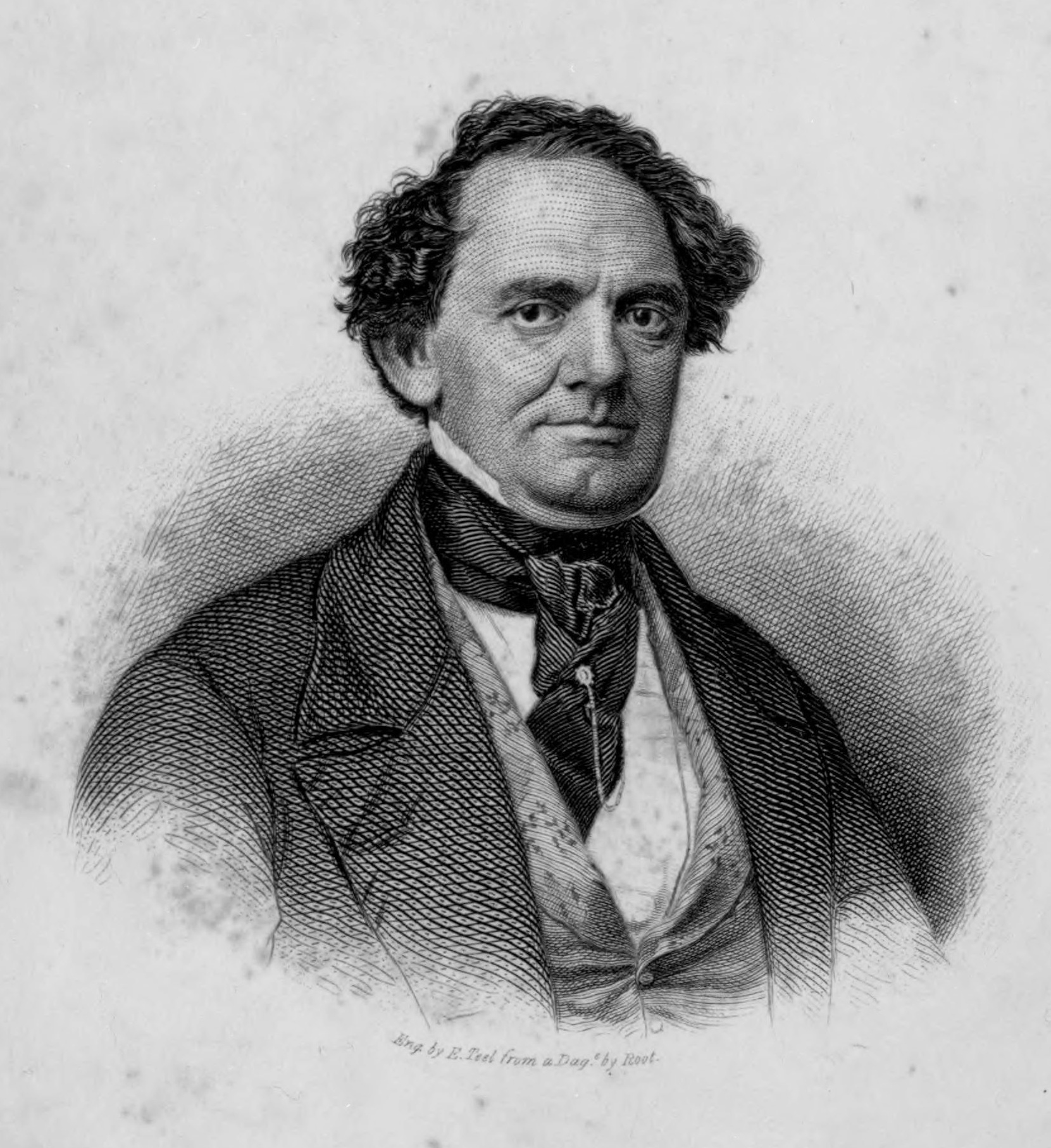P.T. Barnum’s Forgotten Book “The Art of Getting Money” – Ch. 8 – Pt. 2
We are doing a series here at BBH on The Art of Getting Money, a little-know book from P.T. Barnum wrote back in 1880.
Why? A couple reasons. First, because of a new movie that just came out December 25, 2017, starring Hugh Jackman, called The Greatest Showman.
It’s a musical about the life of P.T. Barnum.
I don’t know a lot about the movie yet, but my wife and her friends saw it and they loved it…
The Greatest Showman – Official Trailer
P.T. Barnum’s Little-Known Book from 1880
So I thought it’d be cool to feature his little-known book The Art of Money Getting or Golden Rules for Making Money (It’s in the public domain, so it’s ok for me to post it on this site)
Some of you might not know this, but Barnum is FALSELY known for saying, “There’s a sucker born every minute,” (He actually didn’t say that.)
The second reason I thought it would be good to do this is series is because this book contains some surprisingly practical and helpful advice on how everyday people can better manage their income and increase their wealth.
The book is 137 years old, but much of the advice he gives is still applicable to all of us today.
That’s why I’ve decided to post a new segment of the book once a week here on BayBusinessHelp.com.
Today you will be able to read chapter 1 about choosing your vocation (i.e. what you do for a living).
Reminder of 4 Things Before You Read the Book
1. DISCLAIMER:
I don’t agree with everything that P.T. Barnum did during his life.
I also don’t agree with every single thing he wrote in his book.
I don’t even agree that wealth is, or should be, the primary goal in life. (There are plenty things that are more important than wealth!)
But I DO believe that all of us can benefit from learning how to better handle the money (however small or great) that flows in and out of our hands.
And this book contains some advice that I think you will find both interesting and helpful for you when it comes to how to better handle your money.
2. MY ADVICE TO READERS:
Take the good advice and leave the bad!
3. THE ONLY CHANGES I’VE MADE:
The only changes I’ve made to the text are:
- I’ve broke many of the paragraphs into smaller chunks of text to make it easier to read.
- I’ve also bolded or italicized sections of the text to help them stand out to the reader.
- I also occasionally include a modernized word to help the reader understand an old school word or phrase that Barnum uses.
- And I’ve also added some headers to the text, made some quotes stand out, and bulleted some of his points to make sections stand out for the reader.
4. SOME OF IT MIGHT BE OFFENSIVE
Because of the way spoke and thought back in the 1800’s compared to now, you shouldn’t be surprised if some of the content is offensive to our current standards and way of thinking.
If you can’t just ignore this, like I do, and you will be offended, then you probably shouldn’t read any of the posts from this series.

What We’ve Covered So Far
If you missed the previous posts in this series, you can read them here:
Introduction to The Art of Money Getting
— The Art of Money Getting – Chapter 1: Right Vocation
— The Art of Money Getting – Chapter 2: Right Location
— The Art of Money Getting – Chapter 3: Avoid Debt
— The Art of Money Getting – Chapter 4: Persevere
— The Art of Money Getting – Chapter 5: Whatever You Do, Do It With All Your Might
— The Art of Money Getting – Chapter 6: Depend Upon Your Own Personal Exertions
— The Art of Money Getting – Chapter 7: Use the Best Tools
— The Art of Money Getting – Chapter 8 | Pt. I: Don’t Get Above Your Business
Today is the conclusion of chapter 8 and it is another long one. But there is a lot of good information in it – even in the first two sentences.
Read the first two sentences and see what I mean…
— The Art of Money Getting: Chapter 8: DON’T GET ABOVE YOUR BUSINESS PT II —
So in regard to wealth. Go on in confidence, study the rules, and above all things, study human nature; for “the proper study of mankind is man,” and you will find that while expanding the intellect and the muscles, your enlarged experience will enable you every day to accumulate more and more principal, which will increase itself by interest and otherwise, until you arrive at a state of independence.

The Poor Get Rich and the Rich Get Poor
You will find, as a general thing, that the poor boys get rich and the rich boys get poor.
For instance, a rich man at his decease, leaves a large estate to his family. His eldest sons, who have helped him earn his fortune, know by experience the value of money; and they take their inheritance and add to it.
The separate portions of the young children are placed at interest, and the little fellows are patted on the head, and told a dozen times a day, “you are rich; you will never have to work, you can always have whatever you wish, for you were born with a golden spoon in your mouth.”
How the Rich Become Poor
The young heir soon finds out what that means; he has the finest dresses and playthings; he is crammed with sugar candies and almost “killed with kindness,” and he passes from school to school, petted and flattered.
He becomes arrogant and self-conceited, abuses his teachers, and carries everything with a high hand.
He knows nothing of the real value of money, having never earned any; but he knows all about the “golden spoon” business.
At college, he invites his poor fellow-students to his room, where he “wines and dines” them. He is cajoled and caressed, and called a glorious good follow, because he is so lavish of his money.
He gives his game suppers, drives his fast horses, invites his chums to fetes and parties, determined to have lots of “good times.”
He spends the night in frolics and debauchery, and leads off his companions with the familiar song, “we won’t go home till morning.”
He gets them to join him in pulling down signs, taking gates from their hinges and throwing them into back yards and horse-ponds. If the police arrest them, he knocks them down, is taken to the lockup, and joyfully foots the bills.
“Ah! my boys,” he cries, “what is the use of being rich, if you can’t enjoy yourself?”
He might more truly say, “if you can’t make a fool of yourself;” but he is “fast,” hates slow things, and doesn’t “see it.”
Young men loaded down with other people’s money are almost sure to lose all they inherit, and they acquire all sorts of bad habits which, in the majority of cases, ruin them in health, purse and character.
How the Poor Become Rich

Tom Thumb and his bride
In this country, one generation follows another, and the poor of to-day are rich in the next generation, or the third.
Their experience leads them on, and they become rich, and they leave vast riches to their young children.
These children, having been reared in luxury, are inexperienced and get poor; and after long experience another generation comes on and gathers up riches again in turn.
And thus “history repeats itself,” and happy is he who by listening to the experience of others avoids the rocks and shoals on which so many have been wrecked.
“In England, the business makes the man.”
If a man in that country is a mechanic or working-man, he is not recognized as a gentleman. On the occasion of my first appearance before Queen Victoria, the Duke of Wellington asked me what sphere in life General Tom Thumb’s parents were in.
“His father is a carpenter,” I replied.
“Oh! I had heard he was a gentleman,” was the response of His Grace.
In this Republican country, the man makes the business. No matter whether he is a blacksmith, a shoemaker, a farmer, banker or lawyer, so long as his business is legitimate, he may be a gentleman.
So any “legitimate” business is a double blessing it helps the man engaged in it, and also helps others.
The Farmer supports his own family, but he also benefits the merchant or mechanic who needs the products of his farm. The tailor not only makes a living by his trade, but he also benefits the farmer, the clergyman and others who cannot make their own clothing. But all these classes often may be gentlemen.
The great ambition should be to excel all others engaged in the same occupation.
The college-student who was about graduating, said to an old lawyer:
“I have not yet decided which profession I will follow. Is your profession full?”
“The basement is much crowded, but there is plenty of room up-stairs,” was the witty and truthful reply.

Plenty of Room at the Top
No profession, trade, or calling, is overcrowded in the upper story.
Wherever you find the most honest and intelligent merchant or banker, or the best lawyer, the best doctor, the best clergyman, the best shoemaker, carpenter, or anything else, that man is most sought for, and has always enough to do.
As a nation, Americans are too superficial–they are striving to get rich quickly, and do not generally do their business as substantially and thoroughly as they should, but whoever excels all others in his own line, if his habits are good and his integrity undoubted, cannot fail to secure abundant patronage, and the wealth that naturally follows.
Let your motto then always be “Excelsior,” for by living up to it there is no such word as fail.





